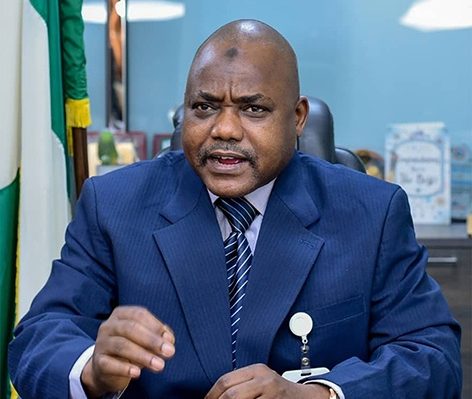Olusola Bello
Hope of Nigerians getting relief from the government as regards the current price crisis plaguing the Liquefied Petroleum Gas subsector and which has made the product out of reach of consumers may have been dashed.
A statement credited to the Department of Petroleum Resources (DPR), one the agencies of government, it does not seem the government would attend to the arbitrary increases in the price of the commodity occasioned by lack of foreign exchange, introduction of Value Added Tax, different levies from both the Department of Petroleum Resources and Petroleum Product Pricing Regulatory Authority (PPPRA), anytime soon.
Sariki Auwalu, director of Department of Petroleum Resource (DPR ), Sariki Auwalu, was said to have cautioned that granting import license for Liquefied Petroleum Gas, LPG, will grind down anticipate growth in the gas sector, shows that the government may response to the yearns of the consumers soon over the price issue.
The in-country production of the commodity is just about 60 percent while the remaining 40 percent is being imported.
Some Industry analysts are of the view that should the importation of LPG banned or some booboo traps are being put on the way of stakeholder from bringing in the product into the country, then Nigeria would have huge crisis on it hands.
Just this Monday, the price of the commodity jumped to N7.6million from about N3.6 million-N4million per 20 metric ton last year. But from the beginning of this year the price started increasing. 1000 kilogram is equivalent to 1 metric ton, and the ex-depot price of 1 kilogram is put at N380.
In the last one month the price increased from N7million to N7.2m and then N 7.3million and on Monday it jumped by N400, 000 to N7.6million.
This is the amount the commodity is taken from the depots to the plants where it is refilled into the 12.5kg cylinders.
The price of 12.5kg is about N6000 on the average at retail outfits in some parts of Lagos plants
The DPR director who did not explain how the importation would grind the Nigerian Gas Master, however, stated that Nigeria has abundant and sweet gas waiting to be explored and the policy direction of the Minister of State for Petroleum Resources, Timipre Sylva, on gas is expected to attract humongous investment that will help in transforming the economy.
Auwalu, said: “Today Nigeria produces about 8 billion standard cubic feet of gas daily, exporting 3.5 billion standard cubic feet of gas and domestic utilisation now standing at 2,8 billion standard cubic feet of gas daily, and that what is needed to do at this point is to drive policy to mature the domestic gas market.
Speaking on Tuesday while reviewing implementation of the Nigerian gas transportation network code (NGTNC), launched last year, the Director said some potential investors are targeting investment in the domestic gas value chain.
He said that the Master-Plan is a guide for the commercial exploitation and management of Nigeria’s gas sector and aims at growing the Nigerian economy with gas by pursuing three key strategies to stimulate the multiplier effect of gas in the domestic economy, position Nigeria competitively in high value export markets and guarantee the long term energy security of Nigeria.
The Nigeria Liquefied Natural Gas, the most reliable source in- country export most of the one its producing as it was initially not to address domestic needs of the country.
The 12.5 kg that was selling for N3,500 has also jumped to N6000 while 3kg that was sold for N900 before has now jumped to about N2,500 and 6kg is being sold for about N4000 depending on the area where it is being sold.
His statement however contradicts that of Dayo Adesina, Special Adviser to the President on LPG, who said the government was going to look at the situation.
“The Federal Government is doing something about the issue so as not allow it efforts to waste because of high price of the commodity,” he said.
“The government is working assiduously to look for additional sources of LPG in the country to reduce the foreign exchange component of the price.
He said government was also going to look into the VAT which Nigeria Customs Service backdated its payments.
“We are not self sufficient and had to import to augment the supplies from Nigeria Liquefied Natural Gas Limited that is why it is affected by Foreign Exchange. I am sure when we are able to find additional sources and there is competition, the price would come down. The NLNG was only able to provide 450,000 tons last year and the consumption of the country has hit over 1 million metric ton per annum. We are not happy that the price of the product has increased,” he said.

